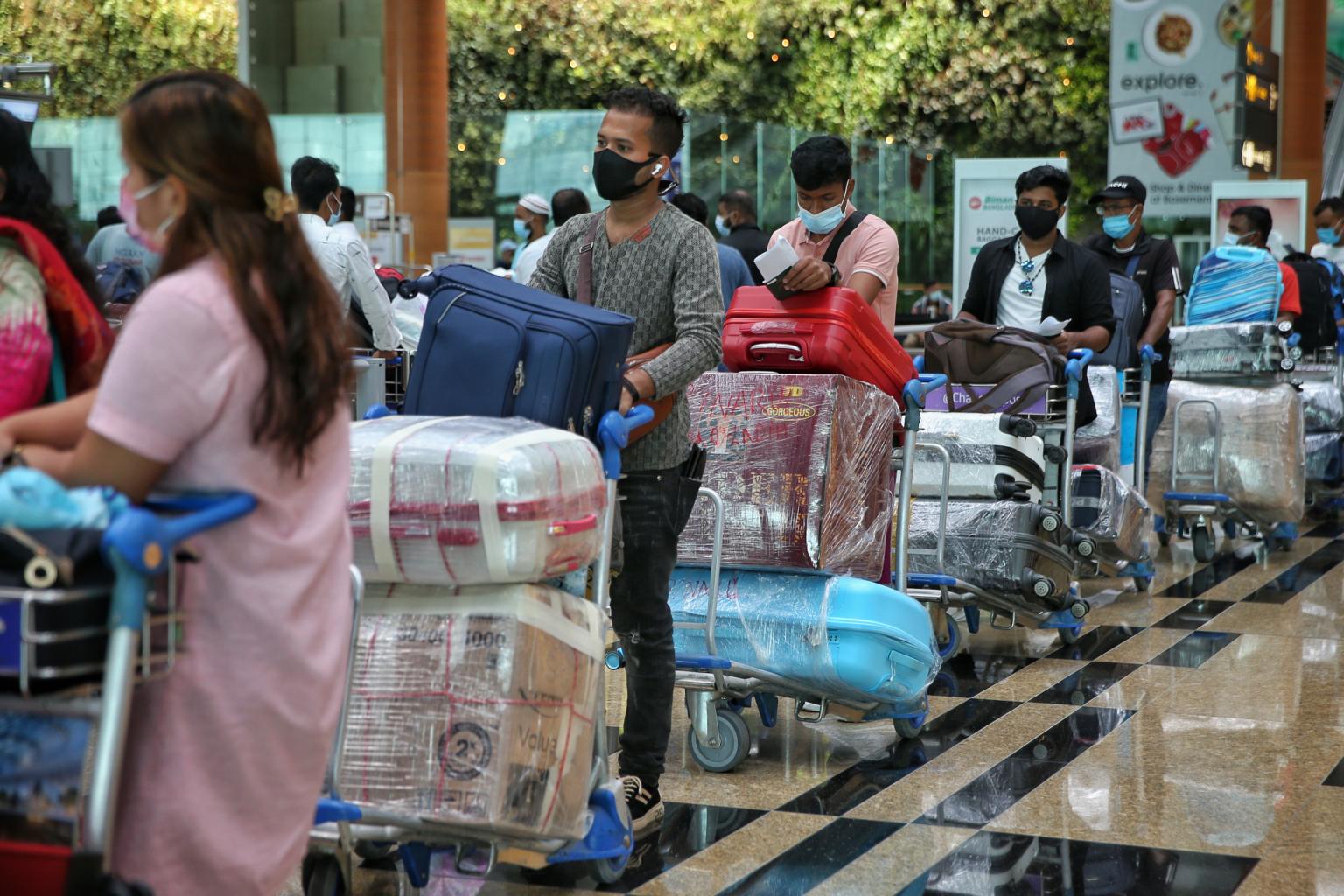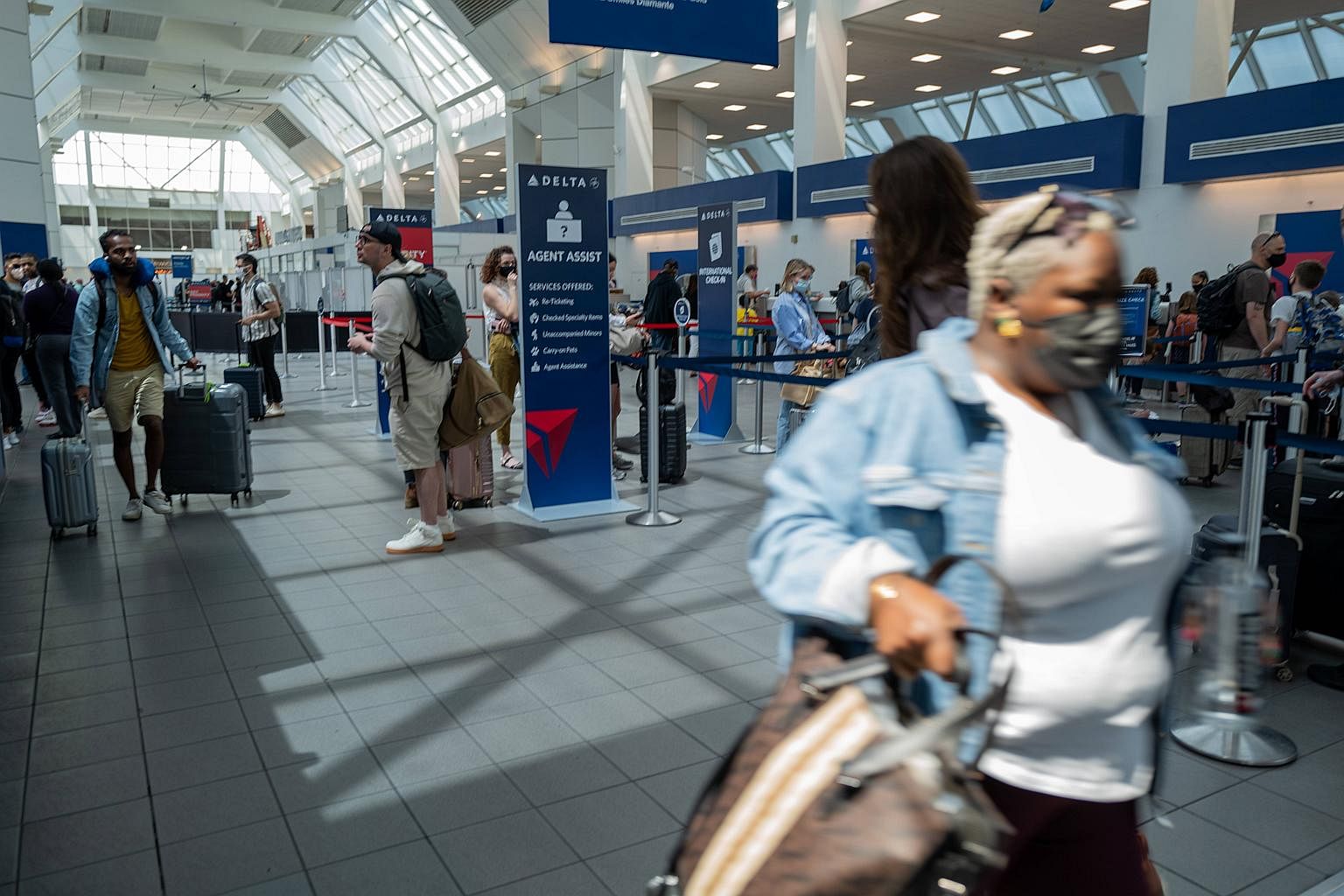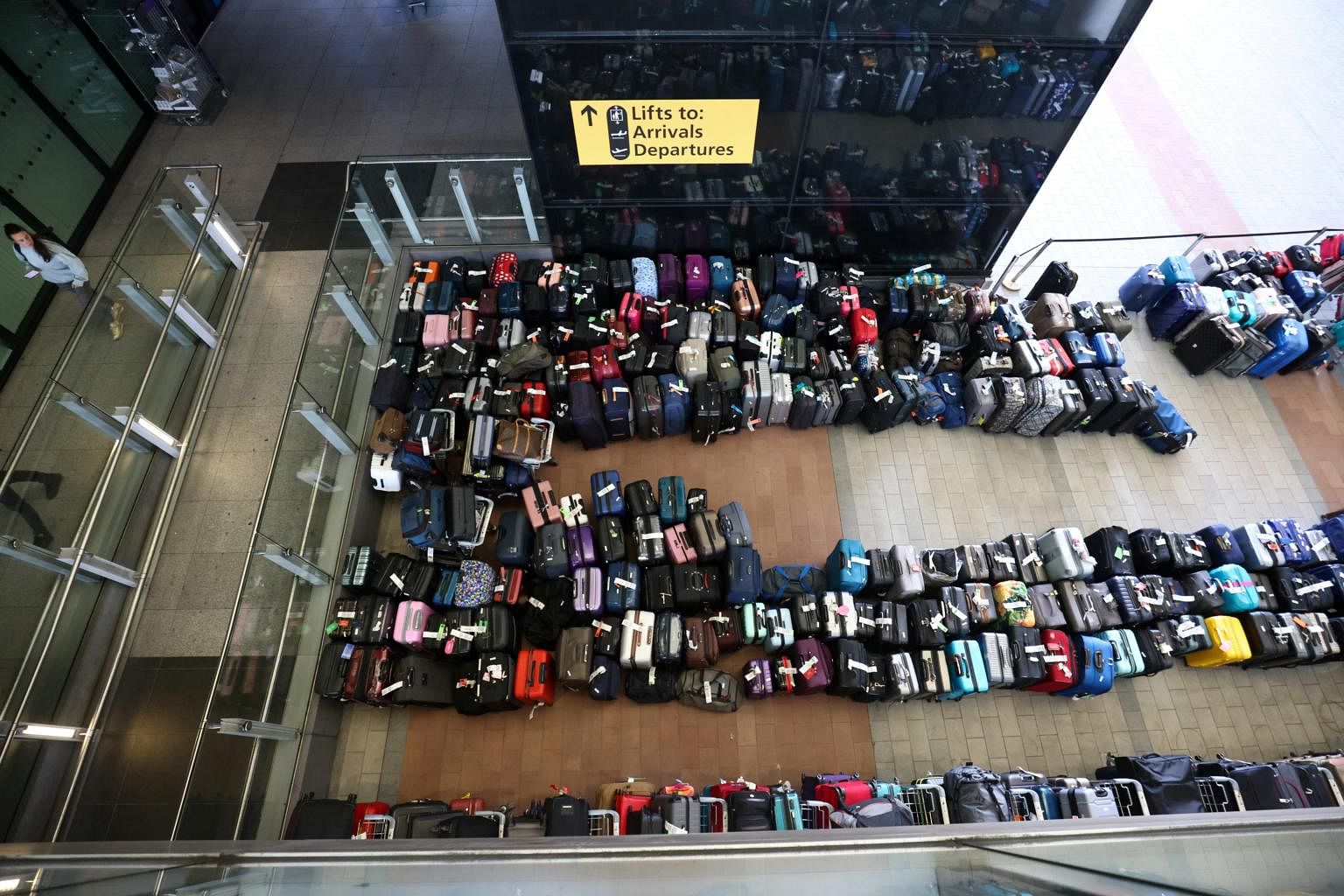Asia could see chaos of Europe, US airports if staff situation not handled right: Iata regional head
Sign up now: Get ST's newsletters delivered to your inbox

In Asia, passenger traffic is expected to rapidly increase to over 70 per cent by year end.
ST PHOTO: FELINE LIM
Follow topic:
DOHA - In 2019, the global aviation sector employed 90 million people. Fast forward to three years later, this has been more than halved to 44 million.
The latest statistic, revealed by International Air Transport Association (Iata) deputy director-general Conrad Clifford on the sidelines of its annual general meeting on Monday (June 20), put the chaotic scenes recently captured in London's Heathrow Airport and Amsterdam's Schiphol Airport into context.
With passenger traffic at airports surging and airlines beginning to make profits again, the lack of workers to process baggage and ensure that flights arrive on time has hampered recovery.
While for now Europe and the United States are the primary regions afflicted, Asian airports could very well be next, industry observers warned, if the issues are not handled right.
Iata's regional vice-president for Asia-Pacific Philip Goh told reporters on Monday: "Asia is not seeing much of airport congestion yet. But I qualify that this will change very rapidly when the travel momentum continues to build the way they have been building in the last few months."
There is already some congestion in Australia, he noted, and singled out Japan as a possible bottleneck when the tourist hot spot eventually opens after an extended lockdown.
"The fact of the matter is that over two years, many people have left the industry, and it takes time to bring these workers back, train them, get them through security clearance," he said.
"If airports and airlines are smart enough to look at the issues Europe is facing, they must be able to plan ahead of the demand curve. Otherwise we would have learnt nothing."
In Asia, passenger traffic is now at 22 per cent of pre-Covid-19 levels, much lower than in other regions, but is expected to rapidly increase to over 70 per cent by year end.
The chaotic scenes in Europe and America has been explained by their airports handling a much higher turnover of passengers without a corresponding increase in employees, as recruitment processes and operations are stymied by labour strikes, governmental regulations around bringing in foreign workers and delayed security clearances for new trainees.
In Europe, delays are back to 2019 levels despite traffic still hovering around 75 per cent of pre-Covid-19 levels. Over the four-day Memorial Day weekend holiday in the US, airlines cancelled more than 2,500 flights, although this was partially pushed up by thunderstorms.
Airline chief executives at the Iata annual general meeting in Doha insist that the problem is a natural result of the bloodletting during the unprecedented Covid-19 crisis, as well as the stop-start nature of government-imposed pandemic measures which made it extremely difficult to plan ahead.

American budget airline JetBlue's chief executive officer (CEO) Robin Hayes said airlines are being unduly blamed for the disruption. Operational limits disrupt their recovery plans too, and it is in no party's interest for the situation to continue.
"In the US, it's only a couple of weeks ago that they removed testing requirements. So it's been a long, slow recovery and there was a lot of uncertainty around the nature of it to begin with," he added.
"It will take the rest of the year to get started... JetBlue could add another 10 to 15 per cent in capacity and we have the airplanes to do it. But the system is too fragile to do that so we've got to plan more conservatively."
President of Emirates Tim Clark said the manpower shortage is an inevitable aftershock of the earthquake that is Covid-19.
"The question on everybody's lips is, 'Where have all the workers gone?'," he added. "It's not peculiar to our business and the best way that everybody can deal with it is in a kind of collegial manner, rather than beating each other up, blame games, price increases."
He said persuasion is by far a more appropriate way to attract workers back to the sector than offering pay increases. "You can give them incentives to come in but that's a very untried way of doing things. Nobody's really done it on that scale before.
"You've got to be careful how you manage that because you create expectations, aspirations, which could be unmanageable going down the line."

Amid the mess, there is one region that has so far managed to cope with the manpower issue particularly well. The Middle Eastern hubs of Dubai and Doha are essentially back operating at full tilt, having opened much earlier at a time when flight volumes were lower with other regions still shut.
This has given Middle Eastern airlines and airports time to make sure the increase in flights has kept pace with rehiring. Qatar Airways CEO Akbar Al Baker said there were more than 20,000 applications for 900 positions during its last recruitment drive.
"We make sure we are inundated with applications wanting to join the airline. In other regions of the world, there is a shortage because people have got into the bad habit of working from home," he added. "This challenge will stay with the industry for some time to come. Let's see what happens."
India airline Vistara CEO Vinod Kannan said the longer runway and earlier opening the Middle East - and India - had made the transition much easier.
India's airports were shut only for two months in the worst of the pandemic and the country has been progressively adding capacity since.
"Asia is a bag of mixed countries, but to a large extent, India and Asia went through the crisis in a more measured manner - setting aside China - as compared to Europe which opened up much faster than capacity. I think they have been conservative for a reason," he added.
- If your recent flight to or from Singapore had been affected by disruptions, we would like to hear from you. Please e-mail us at stshare@sph.com.sg

